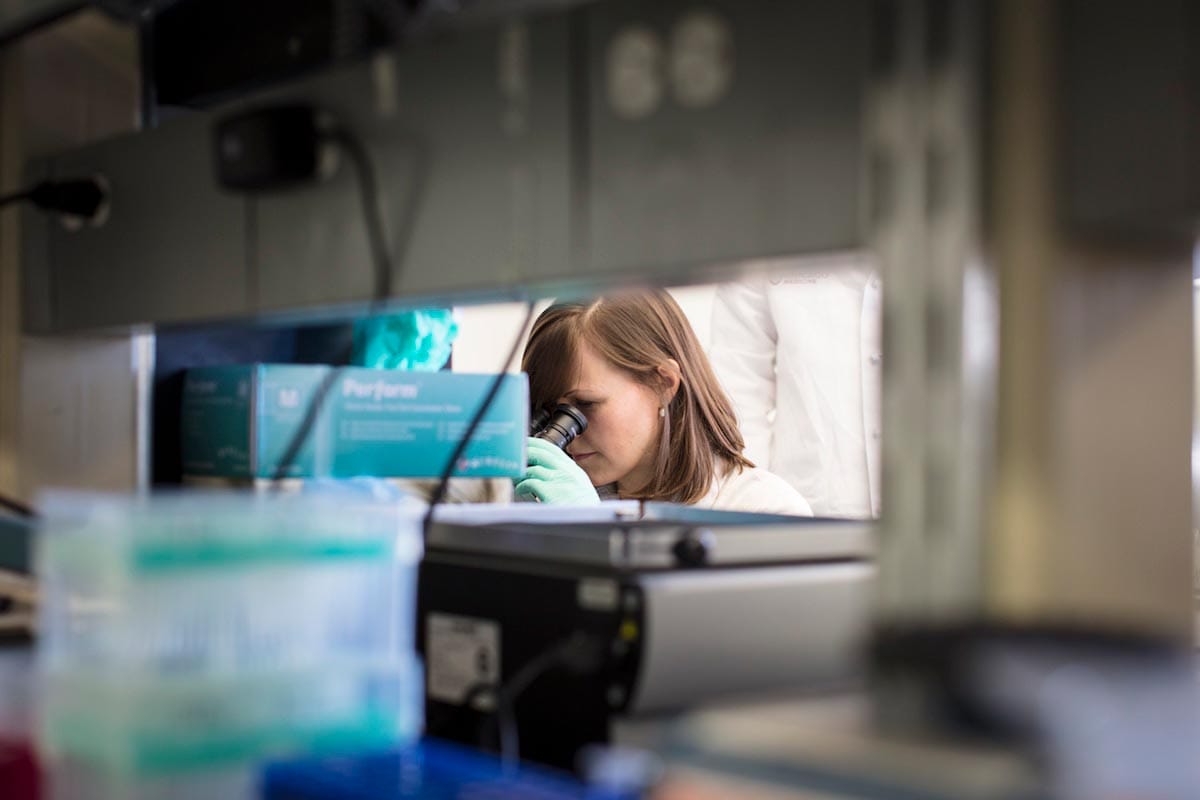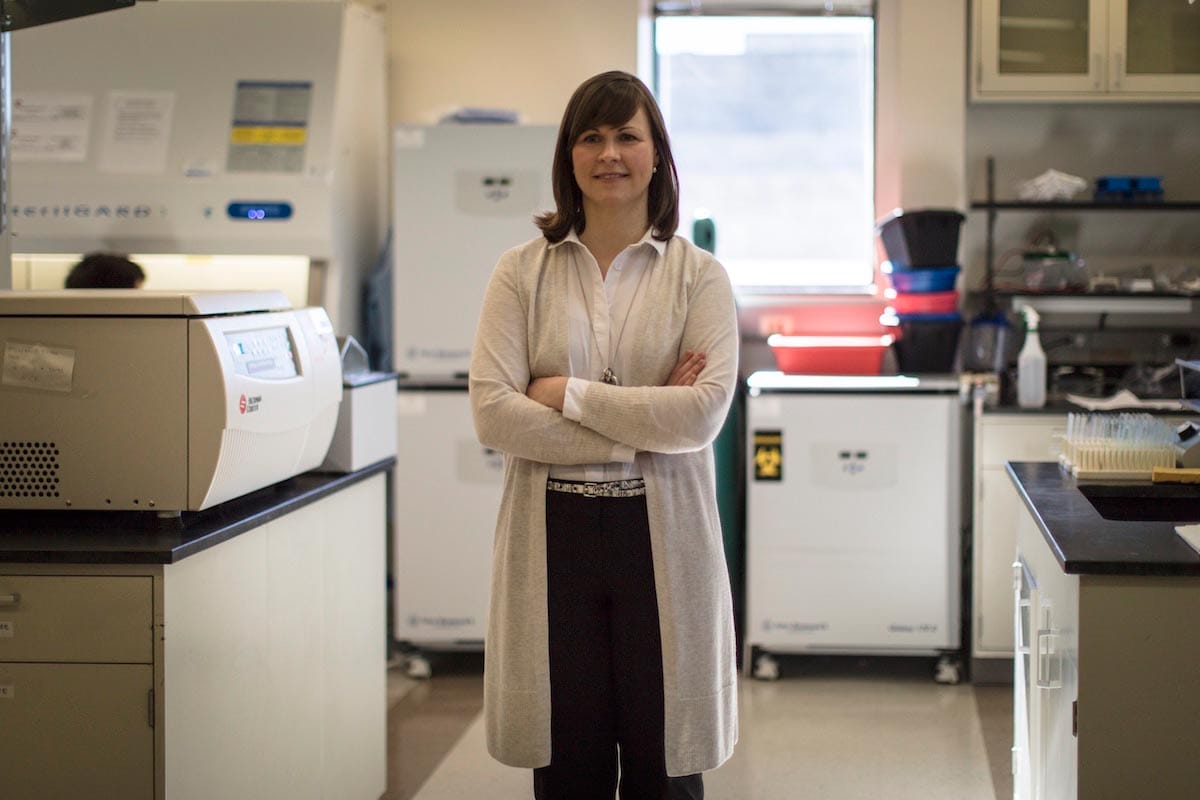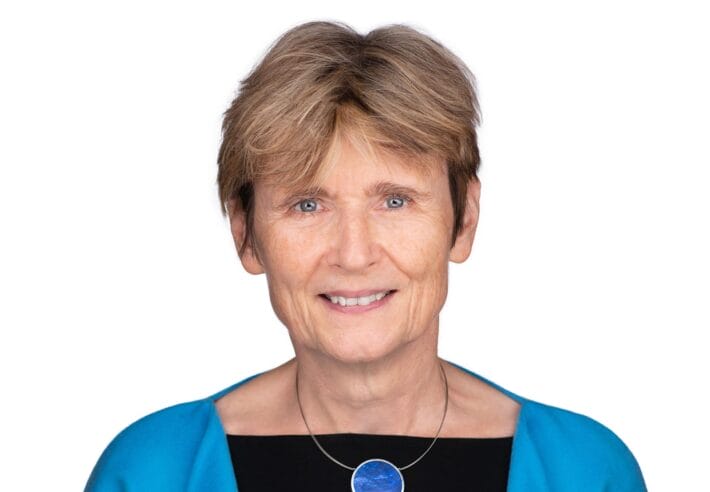Early success is a recurring theme in Michaela Gack’s scientific career. Gack’s ambition has fueled her meteoric rise through the ranks of molecular biology, and her work has unraveled the intricacies of how viruses evade the human immune system.
Raised in a small town in the German state of Bavaria, Gack became enamored with human biology as an undergraduate student at Friedrich Alexander University in Erlangen-Nuremberg. In 2005, she began PhD studies in the lab of molecular biologist Jae Jung at a graduate training program between her university and Harvard Medical School. There, Gack identified a novel molecular mechanism through which a protein in human cells called RIG-I mediates defense against viruses. “RIG-I essentially alerts the immune system to the presence of viruses and sets off an immune response, but many aspects of its mechanism of activation were unclear,” she says.

She found that an enzyme called TRIM25 activates RIG-I by tagging it with a protein called ubiquitin. Once tagged, RIG-I triggers the production of antiviral defense molecules known as interferons. Gack’s work, published in Nature, surprisingly revealed that avian, swine, and human flu viruses block TRIM25 to evade immune defense by RIG-I, unraveling a molecular target for the design of antiviral drugs and vaccines.
The discovery promptly earned her wide acclaim and a faculty appointment at Harvard Medical School, where she rose to an associate professorship in just six years. In 2015, she accepted an associate professorship at the University of Chicago.

Gack’s work has also shed light on the mechanisms through which mosquito-borne viruses evade the human immune response. She has provided a framework for rational vaccine design against emerging infectious diseases. Her goal is to continue to unravel molecular mechanisms that might someday yield antiviral vaccines and drugs not only for emerging and re-emerging viruses but also tumor-inducing viruses, such as certain herpesviruses and human papillomaviruses.
Awards and Accomplishments
- “Top 10 Under 40” list in Biopharma and Business, US (2017)
- John and Virginia Kaneb Award (2015)
- Merck Irving S. Sigal Memorial Award
- American Society for Microbiology (2014)
- “Top 40 Under 40” Scientist, Germany (2013–2015)
- Ann Palmenberg Junior Investigator Award (2013)
- Junior Investigator Award, European Society for Virology (2013)
- The Christina Fleischmann Award to Young Women Investigators (2013)
- William F. Milton Fund Award (2012)
- Selected as one of “100 Women of Tomorrow” — President of Germany (2011)
- Otto Westphal Prize, German Society for Immunology (2009)
- Robert Koch Postdoctoral Prize (2009)
- GE & Science Prize for Young Life Scientists (2009)
- Millipore Young Cell Signaler Award (2007)
- Karl von Frisch Prize (1998)
Jury Members
2017 Vilcek Prize for Creative Promise in Biomedical Science
Iannis Aifantis
Heran Darwin
Laurie Dempsey
Yibin Kang
Peter Palese
Leslie Vosshall
Jedd Wolchok
Related Prize Recipients
Ruth Lehmann

Silvi Rouskin

Pardis Sabeti

You may also be interested in
Vilcek Foundation Awards $250,000 to Immigrants in Biomedical Science

Luciano Marraffini: Working to Decode the Genetic Revolution

Katalin Karikó: The sacrifices and successes of immigrant scientists
